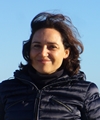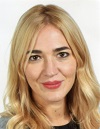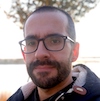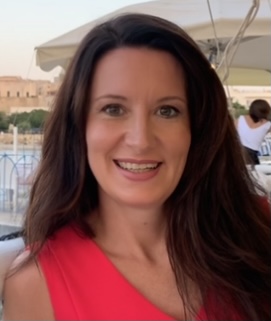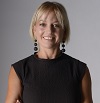Studying at the University of Verona
Here you can find information on the organisational aspects of the Programme, lecture timetables, learning activities and useful contact details for your time at the University, from enrolment to graduation.
Academic calendar
The academic calendar shows the deadlines and scheduled events that are relevant to students, teaching and technical-administrative staff of the University. Public holidays and University closures are also indicated. The academic year normally begins on 1 October each year and ends on 30 September of the following year.
Course calendar
The Academic Calendar sets out the degree programme lecture and exam timetables, as well as the relevant university closure dates..
| Period | From | To |
|---|---|---|
| Sem. 1A | Sep 26, 2022 | Nov 5, 2022 |
| Sem. 1B | Nov 14, 2022 | Dec 23, 2022 |
| Sem. 2A | Feb 13, 2023 | Mar 30, 2023 |
| Sem. 2B | Apr 11, 2023 | May 27, 2023 |
| Session | From | To |
|---|---|---|
| Sessione Invernale | Jan 9, 2023 | Feb 11, 2023 |
| Sessione Estiva | Jun 5, 2023 | Jul 22, 2023 |
| Sessione Autunnale | Aug 28, 2023 | Nov 23, 2023 |
| Sessione straordinaria invernale | Jan 8, 2024 | Feb 17, 2024 |
| Session | From | To |
|---|---|---|
| Sessione Estiva | Jul 10, 2023 | Jul 15, 2023 |
| Sessione Autunnale | Nov 6, 2023 | Nov 11, 2023 |
| Sessione invernale | Apr 2, 2024 | Apr 8, 2024 |
| Period | From | To |
|---|---|---|
| Festa di Ognissanti | Nov 1, 2022 | Nov 1, 2022 |
| Festività Della Immacolata Concezione | Dec 8, 2022 | Dec 8, 2022 |
| Vacanze natalizie | Dec 24, 2022 | Jan 8, 2023 |
| Vacanze di Pasqua | Apr 7, 2023 | Apr 10, 2023 |
| Festa della liberazione | Apr 25, 2023 | Apr 25, 2023 |
| Festa del lavoro | May 1, 2023 | May 1, 2023 |
| Festa del Santo Patrono | May 21, 2023 | May 21, 2023 |
| Festa della Repubblica | Jun 2, 2023 | Jun 2, 2023 |
| Chiusura estiva | Aug 14, 2023 | Aug 19, 2023 |
Exam calendar
Exam dates and rounds are managed by the relevant Humanistic Studies Teaching and Student Services Unit.
To view all the exam sessions available, please use the Exam dashboard on ESSE3.
If you forgot your login details or have problems logging in, please contact the relevant IT HelpDesk, or check the login details recovery web page.
Should you have any doubts or questions, please check the Enrollment FAQs
Academic staff
 tamara.bastianello@univr.it
tamara.bastianello@univr.it
 cristina.bertazzoni@univr.it
cristina.bertazzoni@univr.it
 andrea.ghidini@univr.it
andrea.ghidini@univr.it
 giacomo.mormino@univr.it
giacomo.mormino@univr.it
 stefania.pontrandolfo@univr.it
stefania.pontrandolfo@univr.it
 sorayaelizabeth.shamloo@univr.it
sorayaelizabeth.shamloo@univr.it
 marco.ubbiali@univr.it
marco.ubbiali@univr.it
Study Plan
The Study Plan includes all modules, teaching and learning activities that each student will need to undertake during their time at the University.
Please select your Study Plan based on your enrollment year.
1° Year
| Modules | Credits | TAF | SSD |
|---|
2° Year activated in the A.Y. 2023/2024
| Modules | Credits | TAF | SSD |
|---|
Indirect internship for coordination of educational services
| Modules | Credits | TAF | SSD |
|---|
| Modules | Credits | TAF | SSD |
|---|
Indirect internship for coordination of educational services
| Modules | Credits | TAF | SSD |
|---|
Legend | Type of training activity (TTA)
TAF (Type of Educational Activity) All courses and activities are classified into different types of educational activities, indicated by a letter.
Pedagogical hermeneutics (2023/2024)
Teaching code
4S008420
Teacher
Coordinator
Credits
6
Language
Italian
Scientific Disciplinary Sector (SSD)
M-PED/01 - PEDAGOGY, THEORIES OF EDUCATION AND SOCIAL EDUCATION
Period
Sem. 1A dal Sep 25, 2023 al Nov 4, 2023.
Courses Single
Authorized
Learning objectives
Knowledge and understanding 1. To know and understand that education can also be thought of as the result of an "experience of interpretation" of the behavior of the educator by the educator. 2. To know in its various aspects what it means to "interpret"; to know the history of hermeneutics (not just philosophical) and to understand the necessity of its linguistic-conceptual reformulation in pedagogical terms. 3. To understand that the hermeneutical approach to education requires us to think of hermeneutics as an existential dimension of the human person (Gadamer) which is capable of symbolic thinking (Ricoeur). This ability is an integral part of the professional competence of the pedagogic work. Applying knowledge and understanding 1. To possess a level of knowledge of hermeneutics that will adequately contextualize it in the context of its history, with particular reference to the authors and to the modern and contemporary currents that have characterized its evolution, and to know how to apply it in understanding educational contexts in which educators and especially pedagogic work. 2. To know how to "translate" the acquired learning in the ability to understand, interpret, explain and communicate both a specific educational experience, both "texts" and works having an educational value (e.g. books, paintings, images, films, other artistic expressions and literary). 3. Knowing how to interrogate the classics of the history of pedagogy, interpreting its contents in the light of today's educational and / or pedagogical problems, thus integrating knowledge, apparently far from its historical and cultural horizon, into its educational and professional background.
Prerequisites and basic notions
From the hermeneutic point of view, specific preliminary knowledge is not foreseen, because it is a new topic: it is not present in the teaching system of the three-year degree in Education Sciences (L-19) and there are no explicit references to hermeneutics in the teachings of the first year of the master's degree in Pedagogical Sciences (LM-85). However, knowledge of the philosophical contribution to the formation of pedagogical knowledge may be useful as a prerequisite. This prerequisite is learned in the three-year course (L-19) through the teaching of Philosophy of Education. From a pedagogical point of view, students are asked to remember in particular the disciplinary contents of the first year of their master's course, concerning the professional profile of the pedagogist and the set of methodological and experiential aspects that characterize his professional activity.
Program
The program is divided into three large parts, containing the respective topics of study.
1. Epistemological part: the cognitive structure of hermeneutics.
- The etymological, linguistic and cultural meaning of hermeneutics.
- At the heart of the hermeneutic problem: the difficulty of understanding.
- The relational and existential structure of hermeneutics.
2. Historical part: the birth and development of hermeneutics from the classical age to the contemporary age.
- Knowledge and language in the thought of Plato and Aristotle.
- From the Hellenistic and medieval age to the Protestant Reformation: the understanding of language and its different meanings.
- The birth of philosophical hermeneutics in 19th century Germany (Schleiermacher and Dilthey)
- The distinction between the ontological and methodological vision of hermeneutics in 20th century Germany (Heidegger, Gadamer and Betti).
- Further developments of hermeneutics in the twentieth century, in France and Italy (Ricoeur and Pareyson).
- The hypothesis of a unitary foundation between the hermeneutical method and the scientific method.
3. Application and professional part
- From general hermeneutics, of a philosophical nature, to a set of applications of hermeneutics in other fields of knowledge.
- A pedagogical interpretation of the history of hermeneutics and the establishment of a specific discipline: pedagogical hermeneutics.
- The figure of the pedagogist and the hermeneutic dimension in his professional activity.
Bibliography
Didactic methods
The lessons will take place keeping in mind some teaching methods that will alternate according to the needs connected to the development of the program:
- frontal teaching, as the main teaching method, necessary to allow orderly and essential learning;
- participatory and dialogue teaching, useful for encouraging interventions, reflections, questions, short debates, in the classroom and on the Moodle platform, on the topics addressed from time to time;
- reflective teaching, this modality will be constantly kept in mind and, through it, students will be invited to rethink their own educational experience and pedagogical knowledge, in the light of the disciplinary contents being taught, or of the further readings that have been recommended in the course of lessons.
Attendance in the classroom is not compulsory, but it is equally and strongly recommended.
- As regards male and female students who find themselves in situations of particular difficulty, which prevents them from being present in the classroom, with particular regard for those who find themselves in situations of cognitive fragility, the teacher - within the limits of their possibilities - confirms its willingness to identify and implement specific moments and methods of didactic support.
Learning assessment procedures
The verification of learning will take place in the form of a written test, which is compulsory for everyone, without distinction between attending and non-attending students, Italian students and Erasmus students. The written test will consist of 5 open questions and the maximum duration of the exam will be 3 hours.
For those who are particularly interested in the disciplinary contents, it is possible to ask for an oral interview to deepen the contents studied. This request must be agreed in advance with the teacher.
The oral interview must in no case be understood as a method of verification that can replace the written exam. This additional verification method, in fact, can only take place after the written test has been successfully passed.
Evaluation criteria
A) The evaluation of the exam takes place through the verification of the presence of the following learning skills:
1. knowing how to present the main contents of a specific topic in a summary, linguistically correct and discursively coherent way;
2. being able to identify and correctly define the concepts that represent the cognitive pillars of a specific theory or statement;
3. knowing how to reconstruct the set of arguments that support the reasoning or reflections that are the basis of the thought of a given author;
4. knowing how to compare different cognitive elements (words, concepts, theories and arguments, understanding affinities and differences;
5. knowing how to understand, interpret and translate into practice a certain theoretical content in the ways and forms of a possible practical action;
6. knowing how reflect on particular concrete experiences and identify in them the presence of possible theoretical foundations.
B) The measurement of learning ability will take place as follows:
- a score expressed out of thirty will be assigned to each answer;
- the final grade of the written test will result from the average of the grades of the individual answers, with a score out of thirty, accompanied by a qualitative judgement;
- any in-depth interview will be evaluated up to a maximum of 3 points, which will be added to the final grade.
C) Articulation of the evaluation through the numerical score and a corresponding qualitative judgement.
< - 13 (Severely insufficient)
14 – 15 (Very insufficient)
16 – 17 (Insufficient)
18 (Barely sufficient)
19 – 21 (Adequate)
22 – 24 (Fair)
25 – 27 (Good)
30 – 28 (Very good)
30 cum laude (Excellent)
Criteria for the composition of the final grade
The composition of the final grade comes from the average of the marks of the individual answers given to the questions of the task.
In the event that a student asks to carry out an oral examination, 1 to 3 points can be added to the grade of the assignment.
Exam language
Italiano
Type D and Type F activities
I 9 crediti liberi a scelta dello studente (ambito “D”) hanno lo scopo di offrire allo studente la possibilità di personalizzare il proprio percorso formativo permettendo di approfondire uno o più argomenti di particolare interesse legati al proprio percorso accademico.
Per garantire questo fine, si invitano gli studenti a rispettare le seguenti indicazioni per il completamento di tale ambito:
- almeno un’attività formativa erogata come esame universitario (con relativo voto in trentesimi);
- massimo 6 cfu relativi a competenze linguistiche (oltre a quelli previsti dal PdS);
- massimo 6 cfu relativi a competenze informatiche (oltre a quelli previsti dal PdS);
- massimo 4 cfu di tirocinio, (oltre a quelli previsti dal PdS);
- massimo 6 cfu di attività laboratoriale/esercitazioni (compresi quelli previsti nei PdS per l’ambito) di regola viene riconosciuto 1 cfu ogni 25 ore di attività;
- massimo 6 cfu di attività seminariale/convegni/cicli di incontri/formative in genere (sia accreditata dal Dipartimento di Scienze Umane che extrauniversitaria) – di regola viene riconosciuto 1 cfu ogni 8 ore di partecipazione e/o 2 giornate salvo diversamente deliberato;
- non vengono valutate attività svolte in Erasmus non inserite nei Learning Agreement.
Altre informazioni sono reperibili nella Guida per i crediti liberi che è possibile trovare quì.
COMPETENZE TRASVERSALI
Scopri i percorsi formativi promossi dal Teaching and learning centre dell'Ateneo, destinati agli studenti iscritti ai corsi di laurea, volti alla promozione delle competenze trasversali:
https://talc.univr.it/it/competenze-trasversali
| years | Modules | TAF | Teacher |
|---|---|---|---|
| 1° 2° | Il teatro dell'oppresso | D |
Paola Dusi
(Coordinator)
|
| 1° 2° | Le 16 attitudini per una vita felice | D |
Paola Dusi
(Coordinator)
|
| 1° 2° | Movement medicine | D |
Paola Dusi
(Coordinator)
|
| 1° 2° | Summer school: human sciences and society - (HSAS) – 2022/2023 | D |
Federica De Cordova
(Coordinator)
|
| years | Modules | TAF | Teacher |
|---|---|---|---|
| 1° 2° | Laboratory of behavioral observation techniques | D |
Marinella Majorano
(Coordinator)
|
| years | Modules | TAF | Teacher |
|---|---|---|---|
| 1° 2° | Body and Disability – Laboratory | D |
Michele Scandola
(Coordinator)
|
| 1° 2° | Laboratorio di painting dialogue | D |
Paola Dusi
(Coordinator)
|
| 1° 2° | Group Psychology and evaluation of educational intervention | D |
Anna Maria Meneghini
(Coordinator)
|
| 1° 2° | Le 16 attitudini per una vita felice (ed. 2023) | D |
Paola Dusi
(Coordinator)
|
| 1° 2° | OMeGA - Horizons, Models and Assisted Parenting | D |
Alessandra Cordiano
(Coordinator)
|
| 1° 2° | Tai-Ti aiuto io | D |
Alessandra Cordiano
(Coordinator)
|
| 1° 2° | Se le api sono poche-pedagogia del movimento (ed. 2023) | D |
Rosanna Cima
(Coordinator)
|
| years | Modules | TAF | Teacher |
|---|---|---|---|
| 1° 2° | Il teatro dell'oppresso (ed. 2023) | D |
Paola Dusi
(Coordinator)
|
| 1° 2° | Movement medicine (ed. 2023) | D |
Paola Dusi
(Coordinator)
|
| 1° 2° | OMeGA - Horizons, Models and Assisted Parenting | D |
Alessandra Cordiano
(Coordinator)
|
| 1° 2° | Tai-Ti aiuto io | D |
Alessandra Cordiano
(Coordinator)
|
Career prospects
Module/Programme news
News for students
There you will find information, resources and services useful during your time at the University (Student’s exam record, your study plan on ESSE3, Distance Learning courses, university email account, office forms, administrative procedures, etc.). You can log into MyUnivr with your GIA login details: only in this way will you be able to receive notification of all the notices from your teachers and your secretariat via email and soon also via the Univr app.
Student mentoring
Graduation
Documents
| Title | Info File |
|---|---|
|
|
pdf, it, 99 KB, 13/10/23 |
|
|
pdf, it, 101 KB, 10/04/24 |
List of theses and work experience proposals
| theses proposals | Research area |
|---|---|
| Psicoanalisi | Psychology - Psychology, Psychoanalysis |
Gestione carriere
Linguistic training CLA
Practical information for students
Documents
| Title | Info File |
|---|---|
|
|
pdf, it, 325 KB, 02/05/23 |
|
|
pdf, it, 212 KB, 02/05/23 |
|
|
pdf, it, 131 KB, 02/05/23 |
Stage e Tirocini
Per le altre attività formative (crediti F) sono previsti 9 cfu (pari a 225 ore) da acquisire solamente attraverso l’attività di tirocinio obbligatoria, a sua volta suddivisa in:
- tirocinio indiretto (1 cfu: 25 ore di frequenza obbligatoria in università per il 75%) in preparazione dell’attività formativa sul campo;
- tirocinio diretto (8 cfu), da svolgersi presso enti convenzionati.
L’ordinamento didattico della LM in Scienze pedagogiche prevede che il tirocinio indiretto a frequenza obbligatoria si svolga in università per il 75% nel secondo anno (1 CFU: 25 ore).
Il tirocinio indiretto consiste in un accompagnamento iniziale delle/degli studenti da parte dei tutor attraverso un percorso di formazione della durata di 25 ore.
La finalità di questo percorso è quella di preparare le/gli studenti alla particolare forma di apprendimento costituita dal tirocinio, dotandoli di conoscenze e strumenti adeguati a osservare, comprendere e rielaborare criticamente l’esperienza di tirocinio nei servizi educativi e ad affrontare il tirocinio negli enti con metodo e consapevolezza.
Il percorso, da attuare in gruppi da 20-25 persone sotto la supervisione di un tutor proveniente dal mondo professionale di educatori e pedagogisti, risponde alle esigenze costantemente espresse sia dalle/dagli studenti stessi sia dalle parti sociali che dai referenti degli enti convenzionati.
Nuove Linee Guida per il tirocinio di Scienze pedagogiche.
- Tutte le informazioni in merito agli stage per futuri studenti sono disponibili alla pagina Stage e tirocini.
- Tutte le informazioni in merito agli stage per studenti iscritti sono pubblicate in MyUnivr - come fare per - stage e tirocini.
- Tutte le informazioni in merito agli stage per le aziende sono disponili alla pagina Stage e tirocini per azienze.
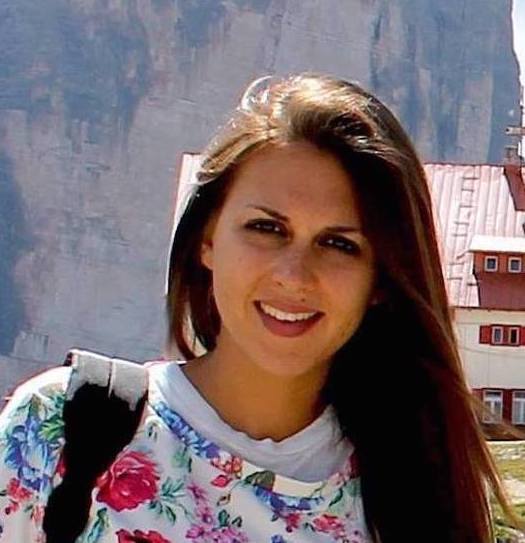

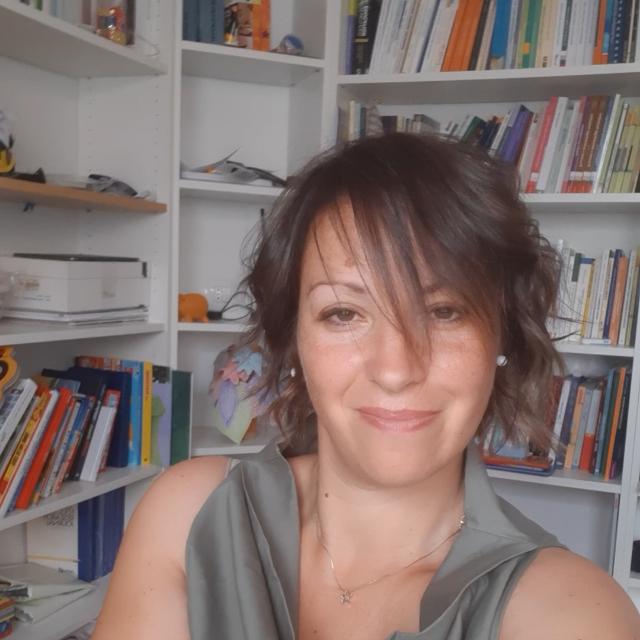
 045 8028383
045 8028383





